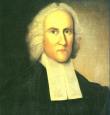Calvinist theologian Jonathan Edwards wrote: “I suppose the will is  always determined by the strongest motive”. [1] He described free will [2] as “the ability to do what we will, or according to our pleasure”. [3]
always determined by the strongest motive”. [1] He described free will [2] as “the ability to do what we will, or according to our pleasure”. [3]
Biblically speaking, we can say that there are some serious issues with this view. Just from a quick glance into the Book of Romans – which is often cited by Calvinists – we find that, according to Paul, giving in to sin is leaving that which is according to nature and giving in to that which is contrary to nature (Romans 1:26-27; see also: Romans 2:14-15). When talking about his pre-regenerate state, Paul states that “I don’t really understand myself, for I want to do what is right, but I don’t do it. Instead, I do what I hate” (Romans 7:15, NLT) and “(…) I know that in me (that is, in my flesh) nothing good dwells; for to will is present with me, but how to perform what is good I do not find. For the good that I will to do, I do not do; but the evil I will not to do, that I practice” (Romans 7:18-19, NKJV). In these texts, Paul described that he was doing that which was not his greatest desire.
Logically speaking, it might happen, for example, that a pedophile has as his greatest desire that he wants to abuse a young child but he decides not to do it, as he does not want to spend the rest of his days behind bars and suffer the shame of his family finding out about his nauseating actions. While his subservient will might be to abuse the child, his stronger motive is to not get behind bars and to suffer no shame. This is an example of the motive overruling a wicked will.
Not only does the Calvinist start from the unproven Edwardian assumption that the will is always determined by the strongest motive, he also starts from the assumption that an unregenerate sinner cannot do anything from pure disinterested benevolence [4]. I do not find any warrants for these assumptions in the Bible, nor anywhere else. It is up to the Calvinist to prove his assumptions.
Footnotes:
[1] Jonathan Edwards, Freedom of the Will (New Haven: Yale University Press, 1957), 143.
[2] His definition does not really give us a good definition for the concept of free will at all. In true Augustinian fashion, Edwards wants to claim that sinners have a free will, in that they can only choose to do wickedness. This is a redefinition of the term free will, which only seems to have been accepted in the Augustinian/Calvinist camp.
[3] Edwards, Freedom of the Will, 11.
[4] “Disinterested benevolence” can also be described as “love without looking for personal benefit” or “selflessness”. An example of this would be a wicked sinner calling an ambulance, as he just saw a lorry hitting a pedestrian, out of love for that pedestrian, and not to gain anything for himself.
